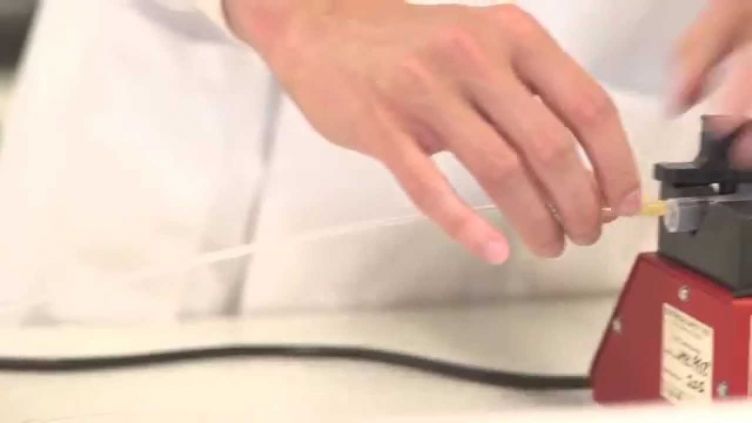Studying mechanical engineering with biomechanics was the perfect way for me to combine my love of biology and medicine with my love of maths and physics.
This is Dr Cecile Perrault, Lecturer in Mechanical Engineering, and she is interested in seeing how mechanical forces influence how cells behave.
Watch: Our interview with Cecile
I didn鈥檛 start out as an engineer, I was actually a pre-med student when I started at 海角社区, but I realised as a pre-med that I wouldn鈥檛 need any more maths or any more physics and it made me really unhappy. I wanted to do maths and physics, that was always my strength, but I also wanted to do biology. Turns out that the 海角社区 of Florida has a degree called Mechanical Engineering with Biomechanics and that was the perfect way for me to combine my love of biology and medicine with my love of maths and physics.
How did you end up in the Faculty of Engineering at 海角社区?
I got a Bachelor's degree in Mechanical Engineering and PhD in Biomedical Engineering from the 海角社区 of Florida. My PhD dealt with cellular mechanics and I was using this new technology called microfluidics that was developing in cellular mechanics. After that I went to Montreal to do a post-doc at McGill 海角社区 and learnt more about microfluidics. After three years in Montreal I travelled to Barcelona for a post-doc in cellular mechanics and microfluidics which was at the Institute of Bioengineering of Catalunya, where I spent another three years studying cells and their mechanics. My supervisor was called to the 海角社区 of Sheffield to open a new Institute, the INSIGNEO Institute for in-silico medicine and he made me the offer come and join him.
What is your research focused on?
Since arriving at the 海角社区 of Sheffield I鈥檝e been involved in a number of projects but they have one thing in common, which is how mechanical forces influence cells. I take cells and I compress them, I stretch them, I flow liquid over them and I see what happens to the cell. We do this because we want to create environments that match what we have in the body. If we can replicate what we see in the body we can help pharmaceutical companies to create drugs much more rapidly because we would be able to test in an environment close to the body instead of testing on glass.
What excites you about engineering?
It makes me very happy to work in this environment because it is a very hot topic and I get to create machines that match the body, which is what I鈥檝e always wanted to do. I鈥檓 helping medicine by building new tools, looking at new questions and also convincing people that mechanical forces are something that we should look into.
We interviewed Cecile in 2014.

